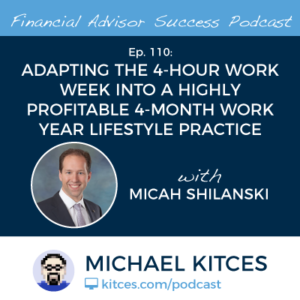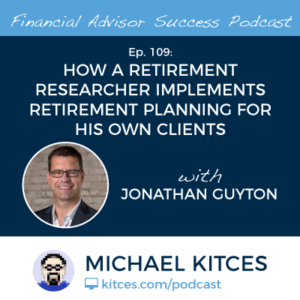In December 2017, Congress passed “comprehensive tax reform” via the Tax Cuts and Jobs Act. The law was a once-in-a-generation, massive rewrite of the Tax Code, and gave birth to IRC Section 199A, which allows certain owners of pass-through businesses to receive a deduction for up to 20% of qualified business income.
While the new deduction will be a powerful way for many business owners to reduce their tax liability, it comes at a price… complexity. Many tax experts believe that “new” IRC Section 199A is among the most complicated aspects of the Tax Cuts and Jobs Act. And as evidence to support that claim, individuals can look no further than the IRS’s massive dump of Section 199A guidance on January 18, 2019. That trove of 199A guidance included 247 pages of Final Regulations and discussion, additional Proposed Regulations, IRS Notice 2019-07, and IRS Revenue Procedure 2019-11!
Critically, the introduction of the Section 199A deduction means that business owners must reevaluate their planning from the ground up, as even “obvious” decisions may need to be altered in light of the new rules. Case in point? Going forward, the Section 199A deduction will dramatically reduce the value of a tax-deductible retirement plan contributions.
This new “deduction-reduction problem” with pre-tax retirement contributions arises from the fact that the Section 199A deduction only applies to qualified business income, which is essentially the profits of a company. But when an S corporation makes an employer contribution to an employer-sponsored retirement plan, that contribution, itself, reduces corporate profits. Thus, there is less profit on which the 199A deduction can potentially apply. The sum of these moving parts is that, for some S corporation owners, a contribution to an employer-sponsored retirement plan will effectively result in a partial deduction, but still subject the entire contribution, plus all future earnings, to income tax upon distribution.
Prior to the issuance of the Final Regulations, it was widely assumed that this issue was only applicable to owners of entities taxed as S corporations, since contributions to retirement plans for sole proprietors and partners do not reduce business profits, but rather, are taken as personal above-the-line deductions on new Form Schedule 1 (formerly on the bottom of page 1 of Form 1040). The Final Regulations, however, make clear that sole proprietors and partners must also “back out” these amounts from business profits prior to the application of the 199A deduction. Thus, the “deduction-reduction problem” created by the Section 199A deduction will impact far more small business owners than previously thought.
In general, the primary reason a business owner should make contributions to a tax-deductible retirement plan (as opposed to a Roth-style plan) is that they believe that they are in a higher tax bracket today than they will be when they distribute those funds (along with their earnings) in the future. But when, in effect, you’re only getting a partial deduction for amounts contributed to a plan today, but still have to pay taxes on the “full boat” in the future, it changes the calculus quite a bit! Notably, for business owners who find themselves in this situation, their future tax rate must be even lower for the tax-deductible contribution today to make sense.
But just because a business owner isn’t getting the same bang-for-the-buck on a tax-deductible contribution doesn’t mean that they should throw in the tax-preferred-retirement-savings towel altogether! Instead, 401(k)s with a Roth-style option will simply become more valuable. And for those business owners looking to sock away more for retirement than the $19,000 maximum Roth 401(k) deferral ($25,000 if 50+ by year-end) for 2019, making after-tax contributions to the 401(k) plan (potentially to later convert under the “Mega-Back-Door Roth” strategy) can be an increasingly attractive option as well.
Of course, there is no -one-size-fits-all solution, and there are still plenty of business owners who will continue to benefit from tax-deductible contributions. Such business owners include those in Specified Service Businesses whose income is so high that the QBI deduction is phased out anyway (such as high-income financial advisors, doctors, lawyers, consultants, and accountants), those who believe that their future marginal tax rate will be significantly lower than the marginal tax rate they face today, and business owners who need to reduce their Adjusted Gross Income (AGI) to qualify for other deductions, credits, etc. (as the Section 199A deduction happens “below-the-line” and itself does not reduce AGI).
And of course, it’s important to recognize that tax-favored retirement accounts, in general, should not be abandoned altogether in light of the deduction-reduction impact of Section 199A. While the new deduction-reduction limitation definitely tilts the balance more towards Roth-style retirement accounts, the tax-deferred nature of all retirement accounts cannot be overlooked. Thus, even getting a partial deduction on a contribution today, while paying income tax on the full amount (plus earnings) in the future, will often be preferable than simply investing the same amounts in a taxable account where the entire contribution is implicitly taxed immediately (as an after-tax-dollars account) and then experienced further annual “tax drag” from interest, dividends, and capital gains.
Ultimately though, the most important thing for business owners and their advisors to realize is that the Section 199A deduction’s complexities go far beyond just the calculation of the deduction itself. Rather, there are ripple effects that make it necessary to take a fresh look at every element of a business owner’s overall tax plan, including which type of retirement plans will really provide the maximum benefit in the future!

 Welcome back to the 110th episode of Financial Advisor Success Podcast!
Welcome back to the 110th episode of Financial Advisor Success Podcast! Welcome back to the 108th episode of Financial Advisor Success Podcast!
Welcome back to the 108th episode of Financial Advisor Success Podcast!
